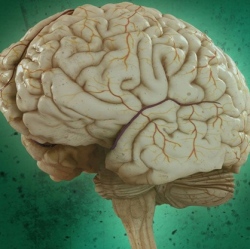
Researchers are coming to the idea that fluency in more than one language heightens executive function, the ability to regulate and control cognitive processes. A shift from decades ago when psychologists warned against raising children to speak two languages, lest they become confused.
One of the most intriguing aspects about bilingual people is that they are constantly activating both languages in their brains, says Viorica Marian, who studies the cognitive and neurological effects of bilingualism at Northwestern University. So, for example, your brain starts guessing words the minute you hear even a fragment of a word. An English-only speaker might hear the word can and his or her brain activates the words candy and candle as possibilities. Someone who speaks two languages will activate similar sounding words in both languages. The trick is to use the appropriate word.
To compare how bilingual and monolingual speakers accomplish this task, Marian and her colleagues had subjects perform a language comprehension task while observing what parts of the brain become active using functional magnetic resonance imaging. Volunteers ages 18 to 27 heard a series of words like cloud and were shown pictures that included clouds, and similar sounding words like clown. The subjects simply had to choose the picture that matched the word.
Bilingual people were no faster at completing the task than those who only speak one language, Marian and colleagues report in the December Brain & Language. However, the monolingual volunteers were forced to activate regions in their brains associated with inhibition and executive control when completing this routine task.
Bilingual volunteers, because their brains are always filtering out words from another language, had very little activation in these brain regions. Those who spoke only one language were working harder. In effect, routinely filtering out words from another language and using the appropriate language is such a potent workout for the brain that other tasks involving executive function are relatively easy.
